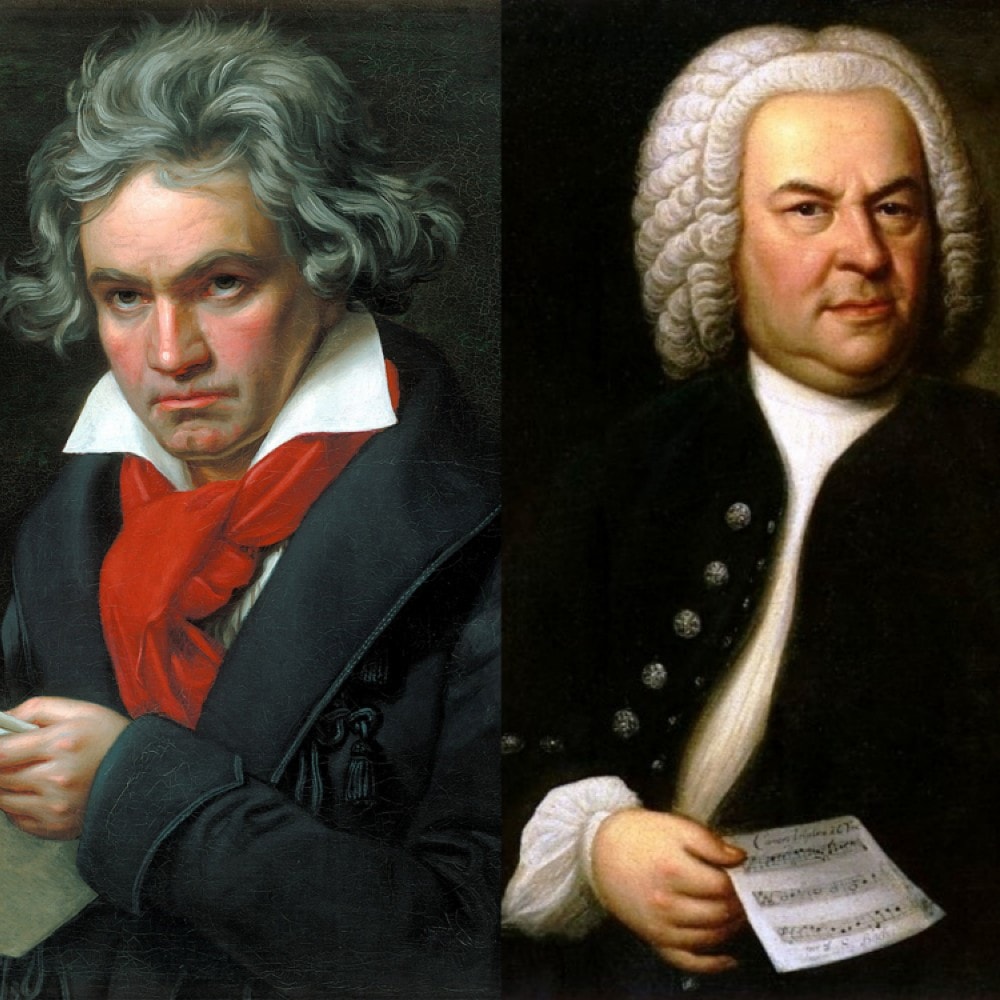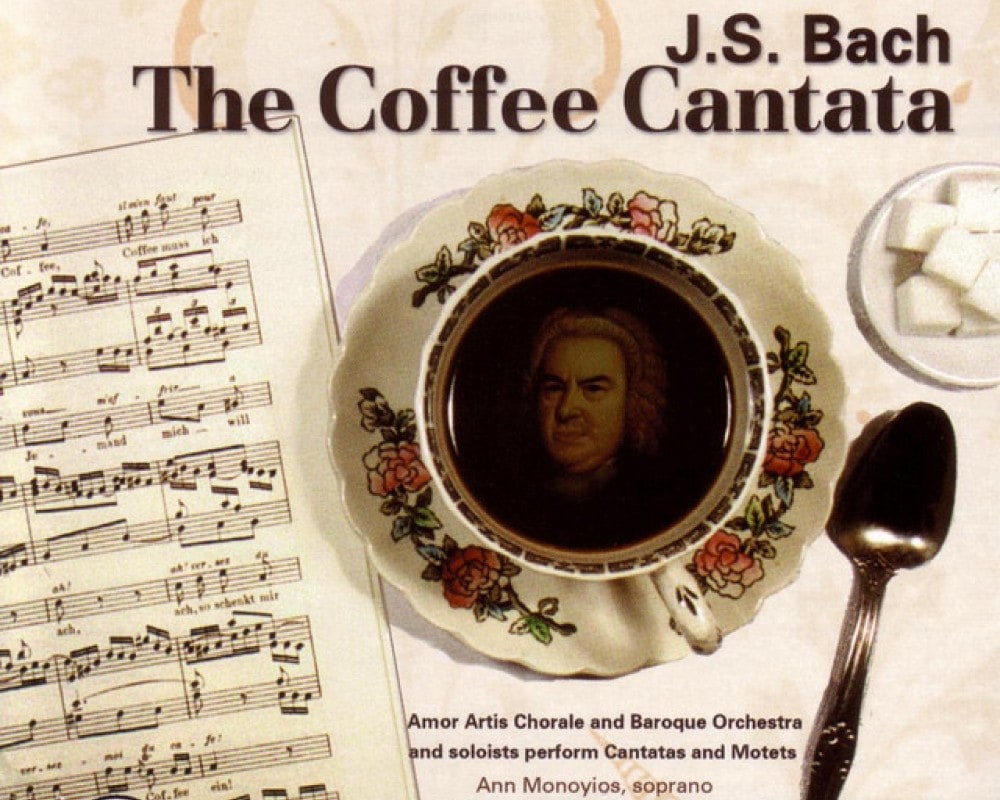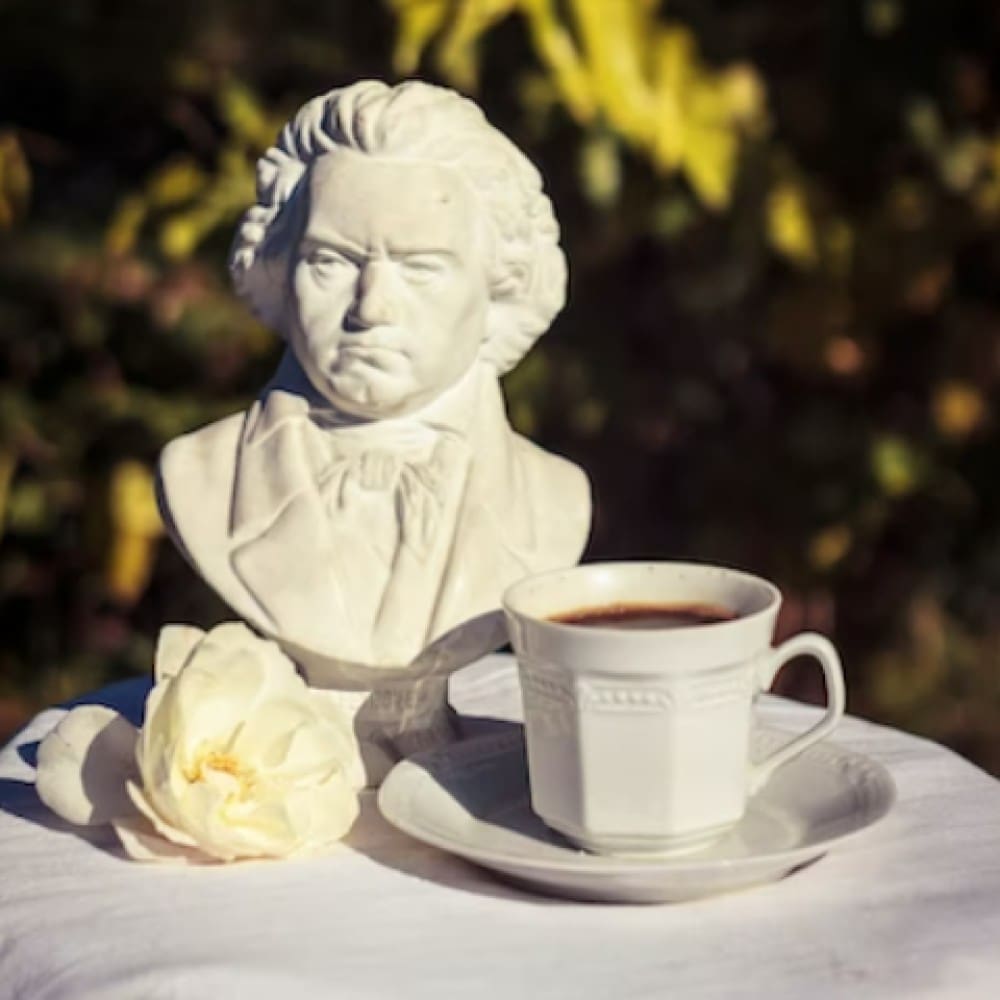
Foods and drinks can cross geographical, temporal, and cultural divides. But have you ever thought that they could fuel creativity too? It seems that particularly one beverage did it by igniting creative sparks in two of the greatest classical music composers of all time. Arguably, coffee played a major role in enabling Johann Sebastian Bach and Ludwig van Beethoven to write beloved compositions, Brandenburg Concertos and Fur Elise, respectively. Let’s find out more about these legendary coffee connections.
The Coffee Cantata by Bach

The 18th century was the time of the very first coffee-meets-classical music association. Bach once famously stated that he felt like a “dried-up piece of roast goat” without his morning coffee. His love of a cup of joe even made the Baroque composer write a mini-opera about coffee. Named ‘Coffee Cantata,’ the musical piece tells the story of a father and his coffee-obsessed daughter. The father tries to convince his daughter to give up the drink and even bribes her to get married instead of indulging in coffee. However, the clever girl outwits her father by inserting a clause in her marriage contract that will allow her to brew coffee at her own will. This coffee opera was quite controversial for its time and was first performed in the 18th century in Leipzig, Germany, where indulging at a coffee shop was a fashionable diversion.
The Coffee Love of Beethoven

While coffee served as a creative inspiration for Bach, a few decades later, it shaped the everyday routine of Beethoven. Beethoven dealt with deafness from 28 years of age and, possibly for this reason, possessed a keen sense of taste, specifically for his coffee. According to Beethoven’s biographer Anton Schindler, coffee was the “indispensable item” in the maestro’s diet. In his book Beethoven, as I Knew Him, Schindler wrote that the composer used to drink coffee regularly for breakfast, which he prepared in a glass coffee maker. Also, he used to estimate 60 whole beans to a cup and often counted them manually instead of taking the usual route of measuring them by weight. Schindler also noted that Beethoven often visited coffee houses near his home. He always used the back doors to enter to sit in a private room. Any visitor willing to meet him was sent to the private room, where he shared cups of coffee with them. As per Schindler, this was one of Beethoven’s habits that never changed.